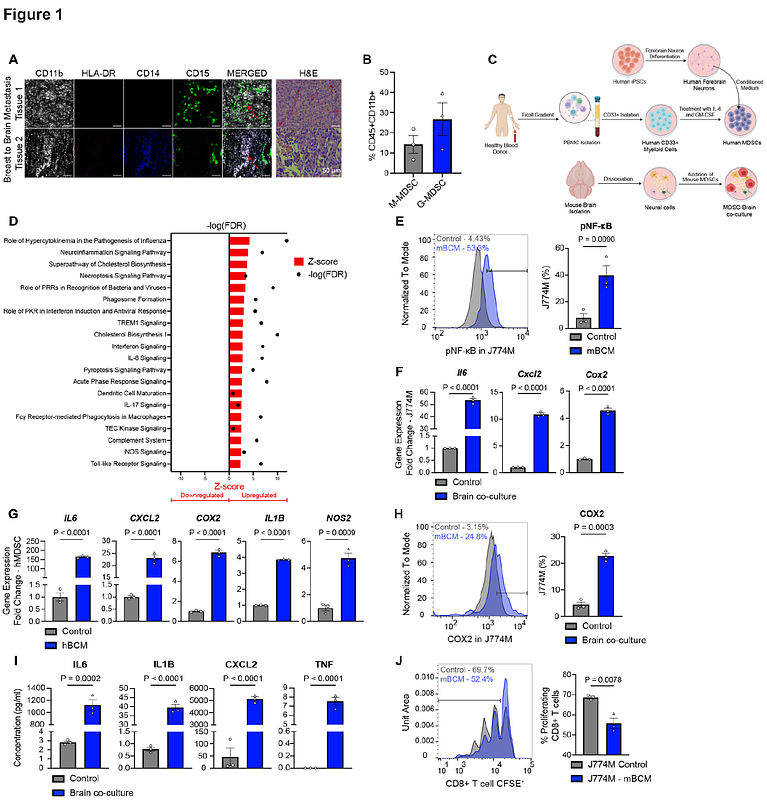Targeting MDSC-HTR2B to Improve Immune Checkpoint Inhibitors in Breast to Brain Metastasis

Targeting MDSC-HTR2B to Improve Immune Checkpoint Inhibitors in Breast to Brain Metastasis
Iyer, M.; Das, D.; Baugh, A.; Shah, P.; Nakamura, B.; Sedighi, S.; Reed, M.; Jang, J.; Chow, F.; Torres, E. R.; Neman, J.
AbstractMyeloid Derived Suppressor Cells (MDSCs) support breast cancer growth via immune suppression and non-immunological mechanisms. Although 15% of patients with breast cancer will develop brain metastasis, there is scant understanding of MDSCs contribution within the breast-to-brain metastatic microenvironment. Utilizing co-culture models mimicking a tumor-neuron-immune microenvironment and patient tissue arrays, we identified serotonergic receptor, HTR2B, on MDSCs to upregulate pNFkB and suppress T cell proliferation, resulting in enhanced tumor growth. In vivo murine models of metastatic and intracranial breast tumors treated with FDA-approved, anti-psychotic HTR2B antagonist, clozapine, combined with immunotherapy anti-PD-1 demonstrated a significant increase in survival and increased T cell infiltration. Collectively, these findings reveal a previously unknown role of MDSC-HTR2B in breast-to-brain metastasis, suggesting a novel and immediate therapeutic approach using neurological drugs to treat patients with metastatic breast cancer.


